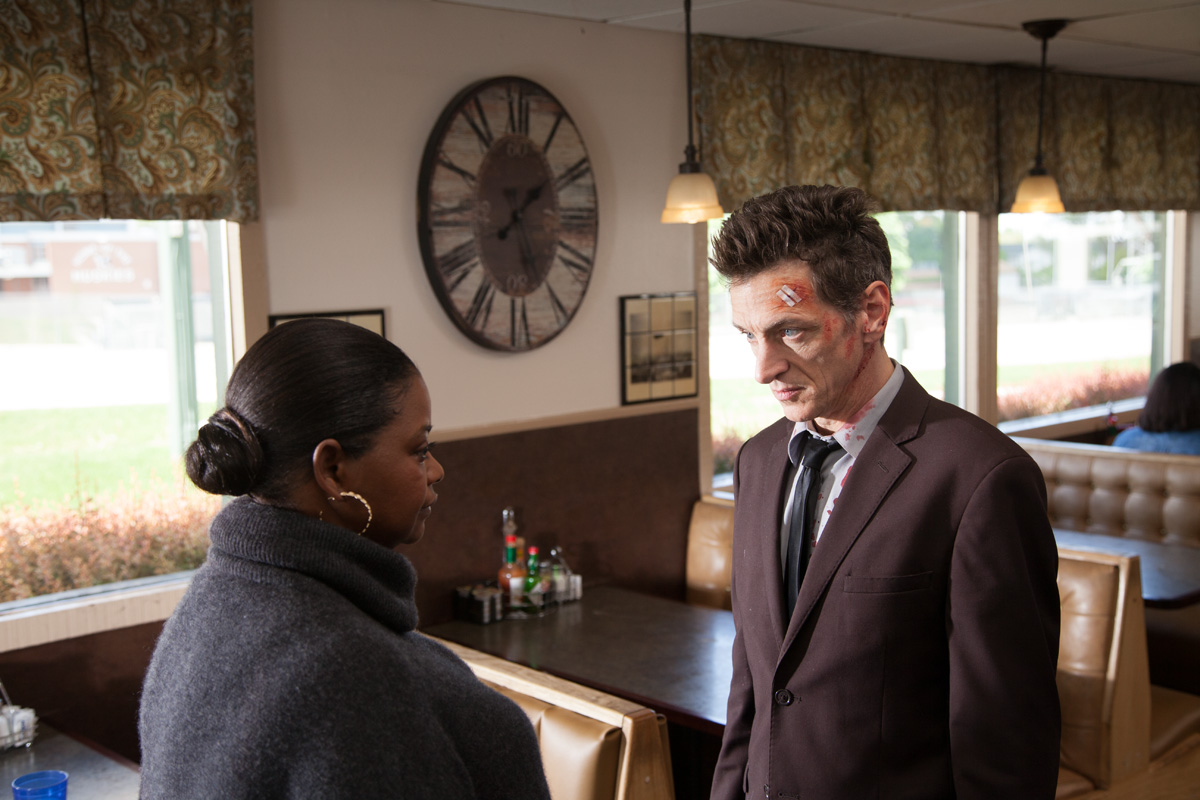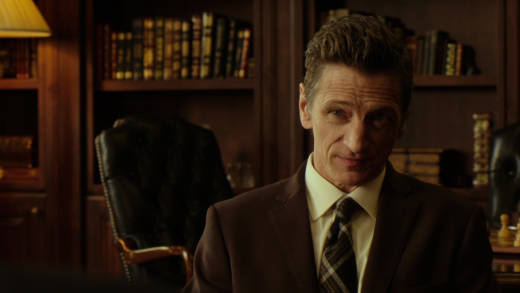The quintessential protagonist of modern movie morality plays is the fatalistic, borderline unethical private eye. From Sam Spade to J.J. Gittes, from Philip Marlowe to Easy Rawlins, they fit a certain mold: Cynical, self-reliant guys whose daily immersion in the world of vice has eroded their belief in justice. Then a case comes along, inevitably involving a female client, that lights their honest path back to civilization.
Ex-cop Mike Kendall (John Hawkes), the low-key hero of brothers Eshom and Ian Nelms’ enjoyable indie slugfest Small Town Crime (opening Friday, Jan. 19 at the Presidio), wasn’t burned out by bribes and betrayals. His tenure on the force was short-circuited by an addiction to booze. So Kendall is unemployed and hung over, but his sense of right and wrong — and his observation skills — are intact.
This lack of ambiguity makes Kendall a less conflicted and therefore less interesting figure, but Hawkes’ wry likability puts us in his corner. When Kendall sees a woman’s body on the side of the open road (Utah doubling for California), he isn’t content to let his old police cohorts handle the case. He may harbor a long-shot hope that he’ll get rehired if he proves his diligence and competence, but his real bottom line is that finding the murderer is the right thing to do.
Kendall’s the kind of private eye who downs his beers and shots without the pretense of a moral dilemma to work through. He doesn’t smoke, which places the movie in the 21st century, but there’s a more explicit contemporary touch: His sister, Kelly (an acerbic Octavia Spencer), is black. The backstory is that Mike was adopted as a child by her family, so their colorblind rapport is believable — though the Nelmses could have played a lot more with a color-aware audience’s expectations.

As it is, the extent of the social commentary in Small Town Crime is to suggest that white-collar nouveau riche types have no qualms about hiring hit men to bury their crimes. The Elmes brothers are conscientious enough to account for every stray character and smart enough to connect every plot strand, but they don’t deliver the subplots or subtext of cinematic crime storytellers such as the Coen Brothers, Quentin Tarantino, Taylor Sheridan (Hell or High Water, Wind River) or Martin McDonagh.



